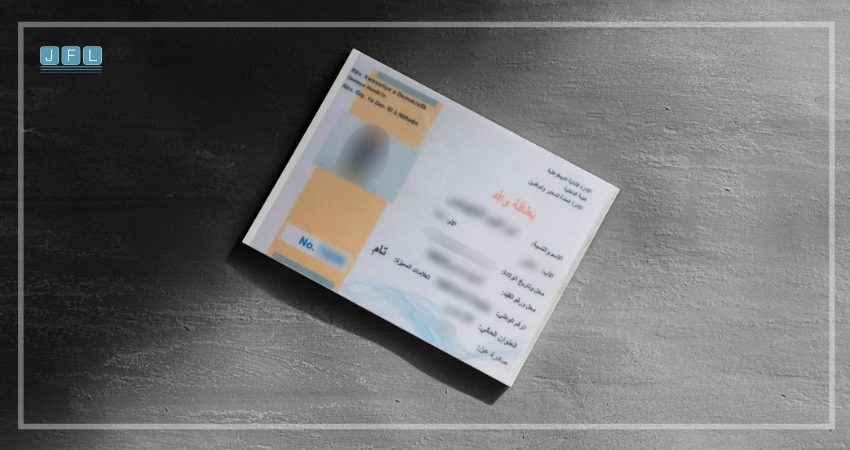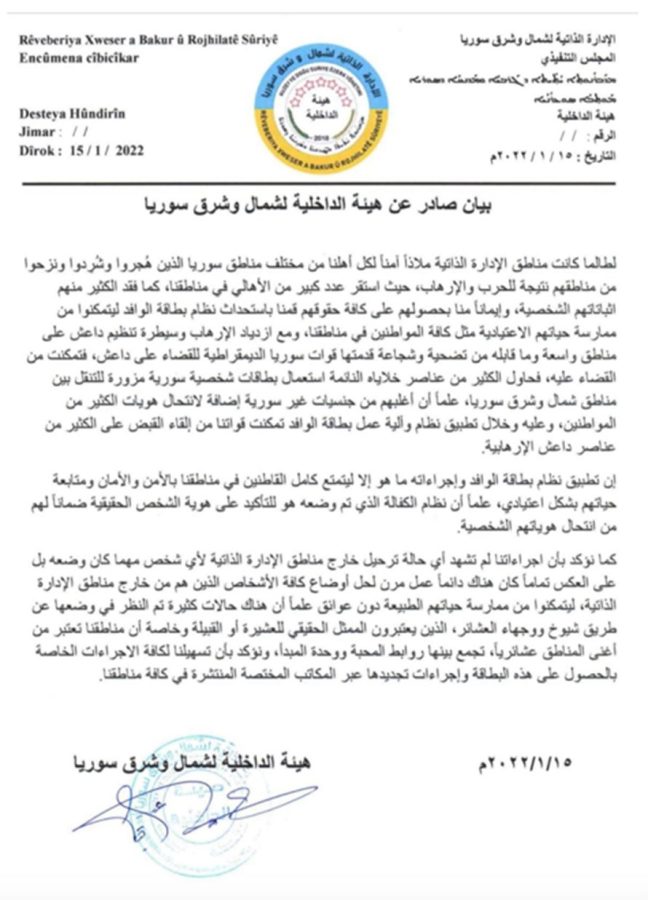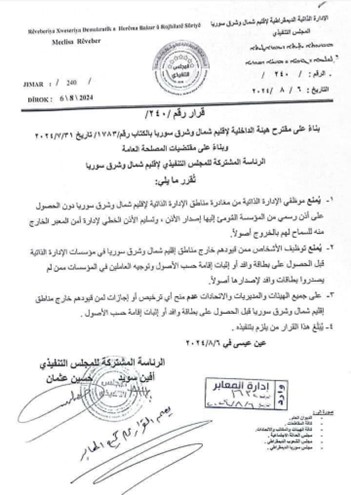The Autonomous Administration of Northeastern Syria introduced the “Expat Card” system to enhance security and stability in areas under its control, including Raqqa. This system aims to regulate the presence of internally displaced persons (IDPs) and expats by verifying their identities and preventing the infiltration of unwanted members that could pose security threats. However, many expats find the justifications for this system unconvincing, arguing that the procedures for obtaining the “Expat Card” add to their burdens and restrict their freedom of movement and work within these areas.
In response to the security challenges posed by ISIS/Daesh’s previous control over large parts of Syria, which significantly destabilized the region, the “Expat Card” system was introduced as a preventive measure in 2019. It requires individuals with personal records outside of Autonomous Administration-controlled areas to obtain this card to enter and reside in northern and eastern Syria. A 2022 statement by the Interior Ministry in North and East Syria asserted that these areas have been a haven for Syrians fleeing war and terrorism, and the “Expat Card” system is part of their commitment to ensuring the rights of displaced persons and expats, allowing them to live normally alongside other citizens. The Autonomous Administration also claimed that the system has been effective in detecting several ISIS members attempting to use forged identity cards to move within these areas, thereby bolstering security and stability.
Despite these justifications, the “Expat Card” system has sparked significant debate among IDPs and newcomers to Raqqa and surrounding areas. Many expats feel that the system discriminates against them compared to the region’s original inhabitants, subjecting them to administrative and bureaucratic restrictions that hinder their ability to move and work freely. They believe there is an urgent need to review this system and develop fairer solutions for expats who have been living in these areas for many years.
A statement issued by the Interior Authority for North and East Syria on 15/01/2022 – Source: Autonomous Administration Accounts on Social Media
On August 6, 2024, Resolution No. 240 was issued, further tightening the existing procedures. Under this resolution, residents with personal records outside of Autonomous Administration-controlled areas are now required to obtain the card as a mandatory condition before they can be employed by administration institutions or obtain licenses and official permits. This decision adds another layer of complexity, increasing the burdens on expats and further restricting their ability to lead normal daily lives.
A copy of Resolution (240) issued by the Executive Council of Northeastern Syria on August 6, 2024 – Source: Autonomous Administration Accounts on Social Media
In light of these developments, this paper seeks to comprehensively analyze the ” Expat Card” system by reviewing its various effects on the local community in Raqqa and the lives of expats and IDPs in particular and to provide practical proposals to review this system and seek more just and equitable alternatives that take into account the rights of expats and alleviate the challenges they face.
Read more: Expat Card















